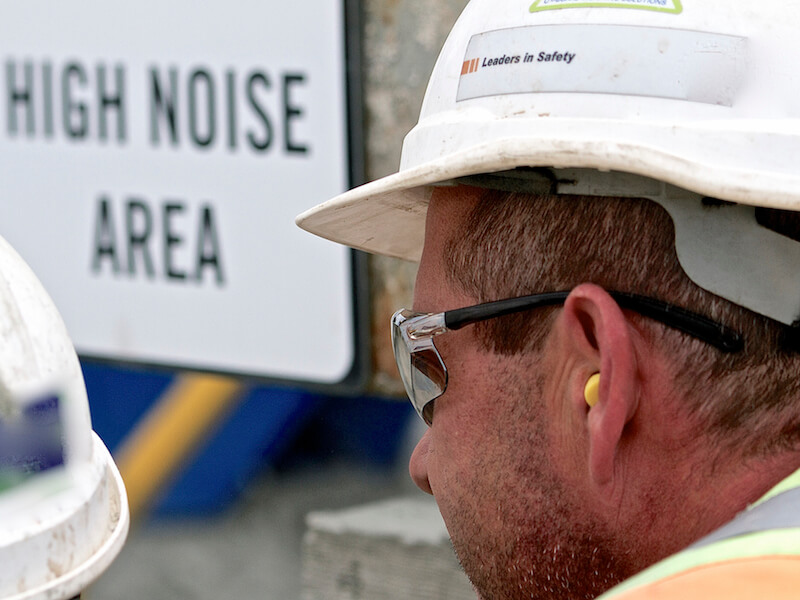
Your hearing can be damaged by a noisy workplace and it can also affect your focus. The health of your hearing can be negatively affected by even modest levels of noise if you’re exposed to it for numerous hours every day. That’s why it’s really smart to begin asking questions like, “what level of hearing protection do I need”?
Most of us probably didn’t even know there were multiple levels of hearing protection. But it seems logical when you stop to consider it. A jet engine mechanic will require a different level of protection than a truck driver.
Levels of Hearing Damage
The fact that 85dB of sound can begin to damage your ears is a standard rule of thumb. We’re not really used to thinking about sound in decibels (even though that’s how we calculate sound – it just isn’t a number we’re used to putting into context).
When you’re sitting in your car in city traffic, that’s around 85 decibels. That isn’t a big deal, right? Wrong, it’s a big deal. It becomes a big deal after several hours. Because the duration and frequency of exposure are very important when it comes to damaging exposure to noise.
Typical Danger Zones
If you’re exposed to 85 dB of noise for eight hours every day or more, you should probably think about wearing hearing protection. But that isn’t the only threshold you need to be aware of. If you’re exposed to:
- 90 dB (e.g., lawnmower): Anything above four hours is considered harmful to your hearing.
- 100 dB (e.g., power tools): Your hearing will be damaged when exposed to this noise level for 1 hour a day.
- 110 dB (e.g., leaf blower): Damage to your hearing happens after 15 minutes of exposure to this noise level.
- 120 dB (e.g., rock concert): Any exposure can cause harm to your ears.
- 140 dB (e.g., jet engine): This amount of noise will lead to instant harm and most likely pain to your ears.
You’ll want the ear protection you choose to be sufficient to bring the volume below that 85 dB level, especially if you’re exposed to those noises for any duration.
Make Sure Your Hearing Protection Fits Comfortably
NRR, which is an acronym for Noise Reduction Rate, is a scale used to determine the effectiveness of hearing protection. Outside sound will be progressively quieter the higher the NRR.
It’s really important that you select hearing protection with a high enough NRR to effectively protect your hearing (and your workplace will usually make recommendations about what level will be appropriate).
But there’s another element to consider as well: comfort. It turns out, comfort is incredibly significant to keeping your hearing healthy. Why? Because if your hearing protection is uncomfortable, you’re not going to wear it.
Hearing Protection Options
You’ve got three basic options to choose from:
- Earmuffs.
- Earplugs that stay just outside of the ear canal.
- Earplugs that sit within the ear canal
There are benefits and drawbacks to each type of protection, but personal preference is often the deciding factor. For some people, earplugs are irritating, so they’d be better served with earmuffs. Other individuals might appreciate the leave-them-in-and-forget-them approach of earplugs (obviously, you won’t want to forget them for too long… you should remove them at the end of your workday. And clean them).
Find a Constant Level of Hearing Protection
Any laps in your hearing protection can result in damage, so comfort is a significant factor. If earmuffs are scratchy and uncomfortable you’re more likely to remove them for short periods and that can have a negative effect on your hearing over time. This is why hearing protection that you can leave in for the entire workday is the best solution.
You’re ears will stay healthier and happier if you choose the right degree of hearing protection for your circumstance.
Call Today to Set Up an Appointment
References
https://www.cdc.gov/nceh/hearing_loss/what_noises_cause_hearing_loss.html
